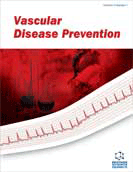Abstract
Patients with end stage kidney disease are characterised by a high prevalence of atherosclerotic vascular disease, which contributes significantly to their morbidity and mortality. Accelerated atherosclerosis is evident at the initiation of dialysis, suggesting that the increase in vascular risk occurs at an early stage of chronic kidney disease (CKD). Recent data confirm that patients with moderate CKD are characterised by a high prevalence of vascular disease, and epidemiological data suggest that even mild degrees of CKD are associated with an increased vascular risk. The increased vascular risk reflects a complex interaction between traditional and novel vascular risk factors and metabolic abnormalities associated with renal impairment. The vascular risk profile of CKD changes from one where classical vascular risk factors predominate in mild CKD to one where vascular risk is compounded by non-traditional risk factors and metabolic abnormalities in severe CKD. Patients with mild to moderate CKD are characterised by a high prevalence of classical vascular risk factors such as hypertension and dyslipidaemia. Insulin resistance is also a feature of moderate CKD. Non-traditional risk factors such as hyperhomocystenaemia and abnormalities of divalent ion homeostasis become apparent as renal function declines. Moderate and severe CKD are also characterised by a strong association between malnutrition, chronic inflammation and atherosclerosis. Alterations in endothelial function and reduced arterial compliance precede the onset of clinically overt vascular disease. The relative contribution of these factors to total vascular risk in CKD remains to be determined.
Keywords: chronic kidney disease, atherosclerosis, cardiovascular disease, vascular risk factors, dialysis, renal transplantation
 1
1

